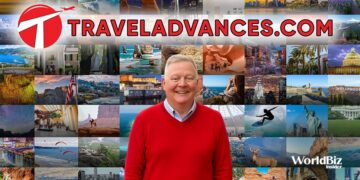In today’s fast-paced business world, maintaining good health and wellness is essential for sustained productivity, creativity, and overall happiness. However, the demanding schedules, frequent travel, and high-stress environments faced by business professionals often make it challenging to prioritize health. This blog explores practical strategies to help busy executives and entrepreneurs stay fit, focused, and energized, without compromising on their work commitments.
1. Prioritizing Mental Health: Stress Management Techniques
Running a business or managing a team comes with high levels of stress and pressure. Chronic stress not only affects mental health but also impacts physical well-being. Here are some effective stress management techniques:
Mindfulness and Meditation
Incorporating mindfulness practices and meditation can help calm the mind and enhance focus. Just 10 minutes of daily meditation can reduce stress and improve emotional resilience. Apps like Headspace and Calm offer guided sessions tailored for busy schedules.
Time Management and Delegation
Effective time management reduces work overload and prevents burnout. Prioritize tasks, delegate responsibilities, and learn to say no to unnecessary commitments. This approach improves productivity and work-life balance.
Breaks and Downtime
Taking short breaks between work sessions enhances concentration and reduces fatigue. The Pomodoro technique, which involves 25 minutes of focused work followed by a 5-minute break, boosts productivity and mental clarity.
2. Nutrition on the Go: Eating Healthy Amidst Busy Schedules
Business professionals often rely on quick meals and fast food due to their hectic routines, leading to poor nutrition and low energy levels. Here’s how to maintain a balanced diet:
Smart Snacking
Opt for healthy snacks like nuts, fruits, yogurt, or protein bars instead of sugary treats or junk food. These options provide sustained energy and improve focus.
Hydration is Key
Dehydration leads to fatigue and decreased cognitive function. Carry a water bottle and aim to drink at least 8 glasses of water daily. Herbal teas are also great alternatives for hydration.
Meal Planning and Preparation
Planning meals in advance helps maintain a balanced diet. Prepare healthy meals at home and carry them to the office to avoid unhealthy food choices.
Dining Out Wisely
When eating out for business meetings, opt for healthier choices like grilled proteins, salads, and whole grains. Avoid fried foods, sugary drinks, and heavy desserts.
3. Staying Active: Exercise Tips for Busy Executives
Regular physical activity enhances productivity, reduces stress, and promotes overall well-being. However, long work hours and frequent travel can hinder fitness routines. Here are some practical exercise tips:
Micro Workouts
Short, high-intensity workouts (HIIT) of 10-15 minutes can be just as effective as longer sessions. These quick bursts of exercise can be done at home, in the office, or even in hotel rooms while traveling.
Incorporate Movement in Daily Routine
Take the stairs instead of the elevator, walk during phone calls, or conduct walking meetings. These small changes increase physical activity throughout the day.
Desk Exercises and Stretching
Sitting for long hours can lead to back pain and reduced circulation. Incorporate desk exercises, stretching, and posture correction techniques to stay active and comfortable.
Travel-Friendly Workouts
For business travelers, resistance bands and bodyweight exercises are convenient workout options. Many hotels also have fitness centers, so pack workout gear to stay consistent.
4. Quality Sleep: The Ultimate Productivity Booster
Quality sleep is crucial for cognitive function, decision-making, and emotional well-being. However, busy schedules, travel, and work stress often disrupt sleep patterns. Here are some sleep optimization tips:
Establish a Sleep Routine
Go to bed and wake up at the same time every day, even on weekends. Consistency helps regulate your body’s internal clock and improves sleep quality.
Create a Relaxing Sleep Environment
Ensure a comfortable and dark sleeping environment. Use blackout curtains, noise-canceling devices, and maintain a cool room temperature for restful sleep.
Digital Detox Before Bedtime
Limit screen time at least an hour before bedtime, as blue light from electronic devices affects melatonin production. Instead, opt for reading or relaxation exercises.
Power Naps for Energy
Short power naps (10-20 minutes) during the day can boost alertness and productivity. However, avoid long naps to prevent nighttime sleep disruption.
5. Work-Life Balance: Achieving Harmony and Preventing Burnout
Maintaining a healthy work-life balance is essential for long-term well-being and success. Here’s how to find the right balance:
Set Clear Boundaries
Establish boundaries between work and personal life by defining work hours and sticking to them. Communicate these boundaries to colleagues and family members.
Prioritize Self-Care and Hobbies
Dedicate time to activities that bring joy and relaxation, such as hobbies, socializing, or spending time with family. Self-care reduces stress and enhances overall happiness.
Unplug and Disconnect
Take breaks from digital devices and social media. Plan digital detox days to rejuvenate and reduce mental clutter.
Seek Support When Needed
If stress or burnout becomes overwhelming, seek professional help. Mental health support, counseling, or coaching can provide valuable coping strategies.
6. Health Checkups and Preventive Care
Busy professionals often neglect routine health checkups due to time constraints. However, preventive healthcare is essential for long-term health and productivity.
Regular Health Screenings
Schedule regular health checkups, including blood tests, cholesterol checks, and screenings for common health issues such as diabetes and hypertension. Early detection prevents chronic illnesses.
Mental Health Awareness
Mental health is just as important as physical health. Stay mindful of stress, anxiety, and burnout symptoms, and seek help when necessary.
Vaccinations and Immunizations
Stay up to date with vaccinations, especially for frequent travelers exposed to different environments. This reduces the risk of infections and illness.
7. Conclusion: Health is Wealth – Invest in Yourself
For business professionals, health and wellness are critical to maintaining high productivity, focus, and leadership effectiveness. By incorporating mindful practices, balanced nutrition, regular exercise, and adequate rest, busy executives can enhance their performance and overall quality of life.
Investing in health is not just about avoiding illness—it’s about achieving peak performance, mental clarity, and emotional resilience. By prioritizing health and well-being, business professionals can lead with energy, creativity, and purpose, inspiring their teams and driving organizational success.























